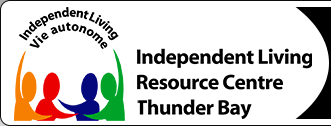Core Programs
To contribute to our vision of an inclusive and accessible society where people with disabilities are valued equally and participate fully, the Independent Living Centres across Canada offer four programs.
Information and Networking
Information is the key to having choices, making decisions, and learning to take risks. The Information and Networking core theme promotes the Independent Living philosophy to consumers, their families, friends and support networks, community and governments by providing clear, accurate and up to date information that meets individual needs.
Skill Development
Communicating, negotiating, problem solving and personal management are all important aspects of daily life. The independent living skills development assists individuals to advocate on their own behalf, supports their choices, respects their decisions, and affords individuals opportunities to take risks. The program also provides learning opportunities for dealing with barriers and discrimination so that persons with disabilities can know their rights and responsibilities, and can access services and training opportunities to live and participate in society.?
Peer Support
Peer support is designed to provide opportunities for people with disabilities to share their knowledge and lived experiences. Peer Support also affords individuals the opportunity to reduce isolation, to develop leadership skills, and gives assistance to individuals in exercising their rights and responsibilities. Peer support can be offered individually or in a group, and can be provided on an ongoing and/or in a crisis-situation in an environment of mutual respect and trust.
Research and Community
The Participatory Action Research model most used in IL Centres recognizes that people with disabilities have expertise in determining what works and what does not. By working together with individuals, community organizations, governments, schools, universities and businesses, gaps in service can be determined and new options and solutions can be created. Research and Community Development activities can include, but are not limited to: conducting research and demonstration projects; disability awareness training and facility/web accessibility audits; and crime prevention and abuse initiatives.

